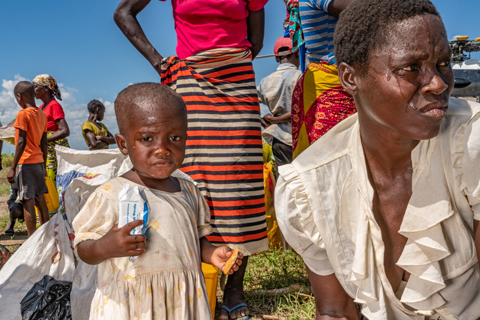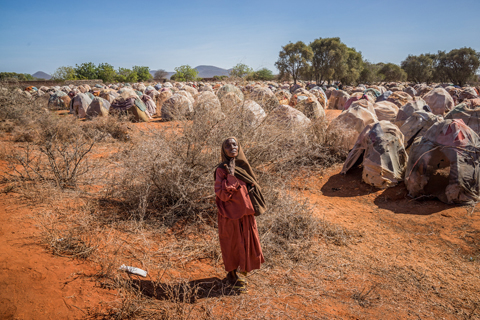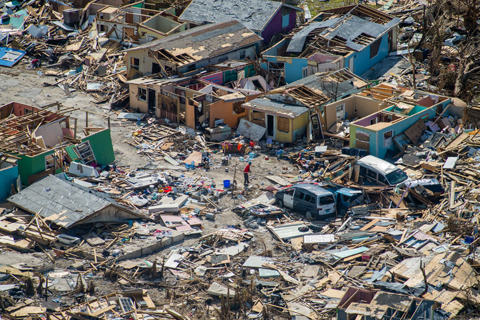
Natural disasters are happening with increased frequency and ferocity, as the planet warms, unleashing extreme weather.
What happens when disaster strikes? Can people recover before they are hit again? And can the world adapt to cope with this rise in disasters?
When Disaster Strikes reveals the mechanics of disaster relief from the inside. The series follows the local governments and people responding on the ground, supported by specialist international teams who fly in critical supplies and personnel. Everyone must learn on their feet as they try to bring order to chaos, hope from despair.
In 2019 major disasters struck the dry expanses of Somalia, lush lowlands of Mozambique and tropical islands of The Bahamas.
In Mozambique, a cyclone brought biblical floods.
In Somalia, a deadly drought destroyed lives and livelihoods.
In The Bahamas, an historic hurricane ravaged whole islands.
Each film charts the response to one of these devastating disasters over several months. Survivors helping each other in the face of adversity, UN leaders and humanitarians bringing their tried-and-tested skills from around the world, government ministers responsible for guiding their communities through these unprecedented crises; they all tell their extraordinary personal stories of determination and hope.
The effects of these tragedies will be felt for years to come. Community resilience and international aid will be stretched to their limits. No one is immune. How far can we prepare before disaster strikes again?

Mozambique - March 2019. A powerful cyclone forms in the Indian Ocean, rapidly growing into a category 4 storm. Cyclone Idai smashes into the coastal city of Beira, home to half a million people, bringing winds over 100-miles-an-hour and a 15-foot storm surge.
Aid workers and government officials are standing by to rush in and assess the damage as the storm moves in land. Initially it appears to be just material damage, but soon a very different picture emerges. Flooding of biblical proportions has inundated entire villages and hundreds have lost their lives in a vast inland ocean: a 1-in-200-year disaster.
A year after the cyclone, more flooding hits again: a massive setback for the recovery efforts. Funding for aid work is overstretched. Yet the people of Mozambique are determined to mitigate the effects of future storms and flooding. Local communities and government ministers work to restore mangrove forests and expand wilderness areas so next time, when disaster strikes, they’ll be better prepared.

Drought is “the silent killer”. Climate change means drought is striking more frequently and with more devastating consequences. Somalia is one of the worst affected countries. Fragile politics and domestic terrorism compound the effects. The result: mass migration, food shortages and malnutrition. Famine is a very real threat.
This film follows the network of resolute humanitarians who work with the local government and affected communities in Somaliland, the Northern region hardest hit by the latest deadly cycle of drought. Can they save lives, livelihoods and an historic way of life before it’s too late?

August 2019 – The Bahamas. Hurricane Dorian, the strongest storm in the country’s history, strikes two of the largest and most populated islands. Hundreds lose their lives, and thousands are left homeless. The scale of the destruction and massive logistical challenges are overwhelming.
This film follows the government ministers, international aid workers and survivors as they battle the trauma of this unprecedented event and the chaos of the aftermath. Can Bahamians recover and rebuild their lives before another hurricane strikes and there is another “paradise lost”?
| Series Producer & Director | Johnny Shipley |
| Executive Producer | David Dugan |
| Producer & Director | Henry Fraser |
| Researcher | Cassia Price |
| Assistant Producers | Martha Bailey , Marissa Chazan |
| Production Coordinator | Ben Church |
| Line Producers | Karen Lee , Jason Hendriksen |